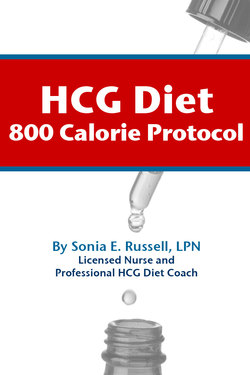Читать книгу HCG Diet 800 Calorie Protocol - Sonia E Russell - Страница 5
На сайте Литреса книга снята с продажи.
The Obesity Epidemic
ОглавлениеThe US is currently the heaviest nation in the world. The health consequences of this are enormous. The diseases associated with weight gain and obesity are well known and include the following:
•Heart disease
•Diabetes type 2
•Osteoarthritis
•High blood pressure
•Gallbladder disease
•Breast cancer
•Endometrial cancer
•Colon cancer
The risk of worsening illness (morbidity) increases as weight increases for the following conditions:
•Respiratory problems
•Cancers of the uterus, breast, prostate, and colon
•Sleep apnea
•Infertility
•Stress incontinence
•Psychological problems including depression
The good news is that by decreasing your weight by just by 10% you will enjoy a significant improvement in your health. The HCG Diet will help you attain the goal of lowering your weight and reducing your risk of disease or death due to obesity–related illness. You will not only look better but feel better, and you can’t beat that.
Obesity
•68% of Americans (over 160 million people) are overweight or obese, and the numbers continue to increase
•The current economic situation results in less expensive and more fattening foods consumed (for example fast-foods)
•Most diets fail in the long run
•Most people do not maintain their weight loss
Why Most Diets May Fail?
•With weight loss and fat loss there is a loss of lean muscle
•A slower metabolism results from the lean muscle loss
•The decrease in metabolism may result in additional excessive weight gain
•Most diets may result in a loss of lean muscle which may slow down metabolism. Most of the time the patient will gain their weight back and often much more!
Long Term Factors in Weight Loss/Gain
1) Slower Metabolism
The more you diet, the harder it is to lose weight. Most weight loss programs result in a loss of lean muscle which may slow metabolism. Most of the time the patient will gain their weight back and more!
2) Aging –Declining Hormones
As we age, our hormone levels naturally decline as well as our metabolism.
This is significant with menopausal women that most often complain of the “menopausal extra 30 pounds”. The hormones of youth (ex. Testosterone, Estrogen, Progesterone, Growth Hormone, DHEA) also decrease and/or become imbalanced.
3) Prolonged Stress
The hormone Cortisol increases with stress and may cause the body to store fat. High levels of Cortisol may cause insulin levels to rise, predisposing the patient to Diabetes. Stress may also drive down DHEA, a hormone produced by the Adrenal Glands that assists in endocrine function.
4)Life style
Poor eating habits and lack of exercise
5)Health Status
Disease and medications
6)Genetics
Thyroid disease and many other metabolic conditions
7)Emotional Issues (i.e., stress, depression and anxiety)
Stress elevates Cortisol levels and depression may lead to overeating
8)Skipping Breakfast
People that skip breakfast are 450% more likely to become overweight and obese
9)Hunger
The body will store fat if it is not properly nourished
Rollercoaster Dieting/Yo-Yo Dieting
Starvation diets - VLCD (very low calorie diets) and LCD (low calorie diets) without HCG may cause a loss of lean muscle that may result in a slower metabolism.
•These diets typically fail and all the weight lost is gained back plus more!
•A slower metabolism may make it harder and harder to lose weight.
•Fat cell size and number increase with weight gain. Fat cell size will only decrease when you lose weight. The more you Yo-Yo diet, the more fat cells will multiply so this is why it gets tougher and tougher to lose weight the more a person diets.
Bottom line- Losing weight will shrink your fat cells, it will not eliminate the fat cell for good.
Diets that May Cause Loss of Muscle
•Starvation and Ketosis Dieting
•VLCD’s & LCD’s - Diets less than 800 calories daily
•Eating less than 3 meals per day
